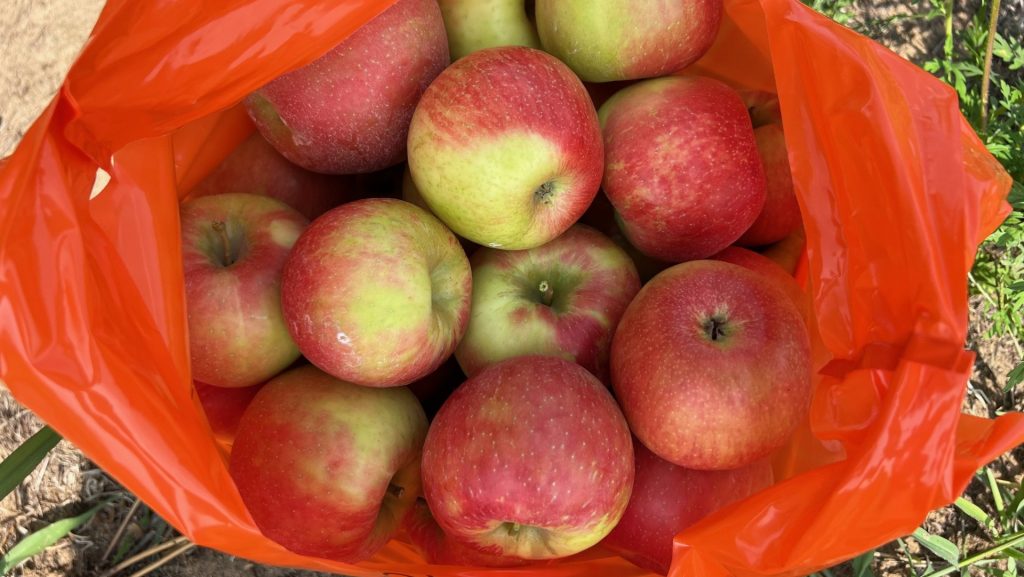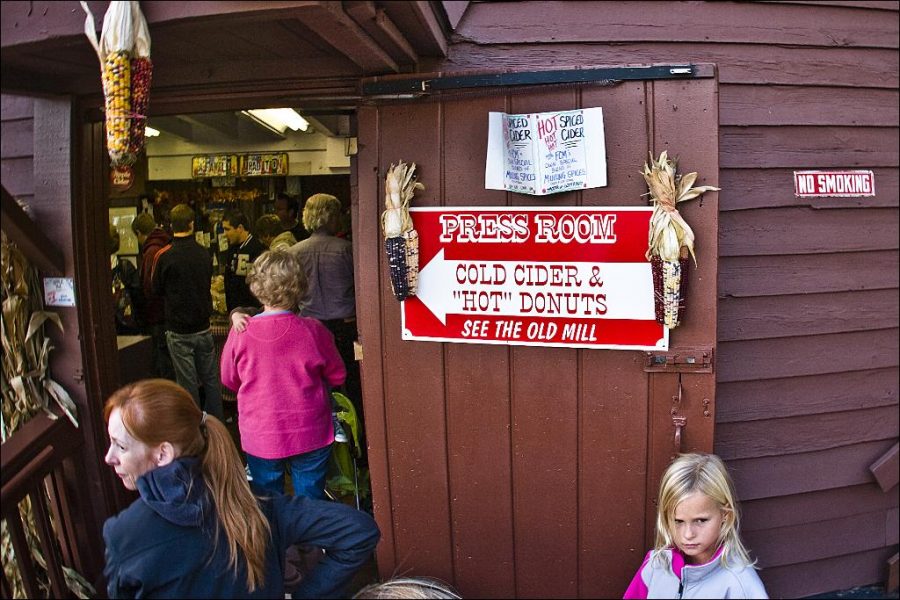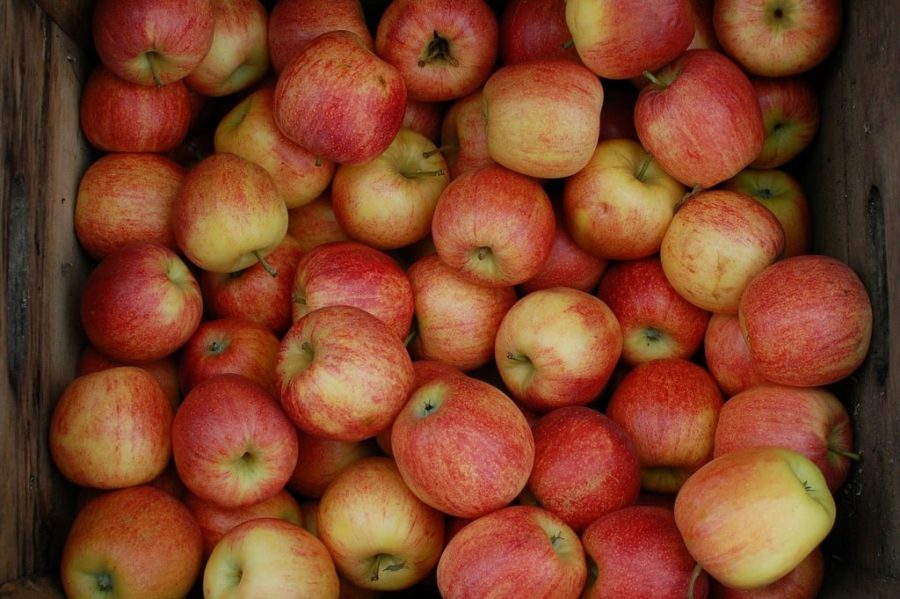CuriosiD: Why are cider mills so popular in Michigan?
Amanda LeClaire November 14, 2024In this episode, WDET listener Adam Danis pressed us about Michigan’s cider mill obsession and the time-honored tradition of enjoying cold apple cider and fresh, hot doughnuts with friends and family.

Honeycrisp apples are a popular "u-pick" fruit.
WDET’s CuriosiD series answers your questions about everything Detroit. Subscribe to CuriosiD on Apple Podcasts, Spotify, NPR.org or wherever you get your podcasts.
In this episode of CuriosiD, we answer the question:
“Why are cider mills so popular in Michigan?”

The short answer
Michigan’s cider mills are more than places to grab fresh cider and doughnuts; they’re steeped in tradition. Over 125 licensed mills dot the state, offering Michiganders and tourists alike an autumn ritual that connects them to the local land and community. And while cider mill season is all about that first crisp sip, there’s more at play here: each mill blends its own unique apple varieties, adding seasonal layers to each batch of cider.
But you’re probably wondering: Which Michigan cider mill is the best? Well, it depends who you ask – most locals have a favorite they swear by.

The essence of Michigan’s cider mills
Diane Smith, executive director of the Michigan Apple Committee, emphasizes the cultural significance of cider mills:
“It’s part of the heritage,” said Smith. “Being in Michigan and having that experience in the fall of going to a cider mill, getting your apples and doughnuts, it’s something people look forward to every year.”
These mills are more than seasonal attractions; they are integral to Michigan’s agritourism, providing families with opportunities to connect with local farmers and understand the origins of their food.
Crafting the perfect cider
Operating a cider mill involves meticulous processes to ensure quality and safety. Each mill must adhere to stringent licensing regulations, including food safety training.
A key aspect of cider production is blending various apple varieties to achieve a unique flavor profile that evolves throughout the season. Smith notes that the taste of cider can change dramatically from early September to late autumn, reflecting the diversity of Michigan’s apple harvest.
Read more: Apple growers wallop averages for the third year in a row

Michigan’s apple varieties: A bounty for cider-making
Michigan’s climate and soil conditions are ideal for apple cultivation, producing popular varieties such as Gala, Honeycrisp, Fuji and Ambrosia. These apples contribute to the distinctive flavors found in Michigan’s ciders.
The state’s apple industry is a significant economic driver, with apples being Michigan’s most valuable fruit crop. This industry supports not only growers but also packaging and allied sectors, underscoring its importance to the state’s agricultural economy.
A tradition that resonates
For many Michiganders, visiting a cider mill is a cherished fall activity, offering a blend of tradition, community, and the simple pleasures of the season. The state’s cider mills provide a unique experience that combines the enjoyment of fresh cider and doughnuts with a connection to Michigan’s agricultural roots.
About the listener
This month’s question came from WDET listener Adam Danis. Danis is a Chicago native who currently lives in Midtown Detroit. After spending time in the mitten state, his curiosity grew about Michigander’s love for cider mills all across the state.
More from CuriosiD:
- Is the Main Branch of the Detroit Public Library haunted?
- Behind the Scenes: Celebrating 10 years of CuriosiD
- What is the history behind the Belle Isle Boathouse?
Support the podcasts you love.
One-of-a-kind podcasts from WDET bring you engaging conversations, news you need to know and stories you love to hear.
Keep the conversations coming. Please make a gift today.
Author
-
 Amanda LeClaire is an award-winning journalist and managing editor and lead reporter of WDET's new environmental series, the Detroit Tree Canopy Project, as well as WDET's CuriosiD podcast. She was the host of WDET’s CultureShift and a founding producer of the station’s flagship news talk show *Detroit Today*. Amanda also served as a Morning Edition host at WDET and previously worked as a host, audio and video producer, and reporter for Arizona Public Media.
Amanda LeClaire is an award-winning journalist and managing editor and lead reporter of WDET's new environmental series, the Detroit Tree Canopy Project, as well as WDET's CuriosiD podcast. She was the host of WDET’s CultureShift and a founding producer of the station’s flagship news talk show *Detroit Today*. Amanda also served as a Morning Edition host at WDET and previously worked as a host, audio and video producer, and reporter for Arizona Public Media.
